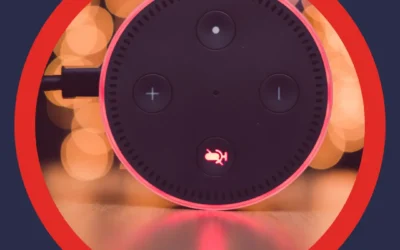September is World Alzheimer’s Month, a time when people worldwide unite to raise awareness and challenge the stigma surrounding Alzheimer’s disease and other dementias. This global campaign reminds us to ask questions, start conversations, and take preventive steps for better brain health. One of the simplest and most effective actions you can take this month is to schedule a hearing test.
Why hearing? Because growing evidence shows that untreated hearing loss is not just an inconvenience. It is also linked to higher dementia risk. Addressing hearing loss early may help protect cognition, communication, and overall quality of life. This article will explore the connection between hearing and brain health, highlight the research, and explain why scheduling a hearing test this September could make a meaningful difference.
Why Hearing Health Belongs in a Brain Health Plan
Hearing is essential for maintaining strong relationships, active lifestyles, and sharp mental function. When hearing becomes difficult, conversations grow tiring, social withdrawal often follows, and stress levels rise. Over time, this combination can impact mood, memory, and overall cognitive resilience.
Studies continue to demonstrate a link between hearing loss and dementia. While researchers are still exploring the exact mechanisms, one fact remains clear: untreated hearing problems increase the strain on the brain. Even mild hearing loss may double the risk of dementia. Fortunately, hearing loss is highly treatable, which makes it a modifiable risk factor for protecting cognitive health.
A recent review of hearing impairment and dementia explains that hearing may influence dementia in several ways. Hearing loss could directly promote brain changes, amplify existing decline by reducing cognitive reserve, or be an early symptom of neurodegeneration. Each possibility highlights the importance of identifying hearing changes early and addressing them quickly.
Research Highlights That Inspire Action
You do not need to read medical journals to benefit from science. The latest research offers practical insights that anyone can use when deciding whether to schedule a hearing test. Here are several important findings presented in clear terms.
Hearing Loss Is Common in People With Dementia
A study published in JAMA Network Open found that nearly 80% of people with Alzheimer’s disease or related dementias had hearing loss. Among those over age 85, the number rose to 94%. Yet only 22% of these individuals used hearing aids. This highlights a significant gap in care and a major opportunity to improve daily life with better hearing support.
Hearing Aids May Slow Decline in High-Risk Adults
The ACHIEVE trial, supported by the National Institutes of Health, showed that people at higher risk of dementia benefited most from hearing care. In this group, hearing aids reduced the rate of cognitive decline by almost 50%. The NIH summary of the ACHIEVE trial provides more detail. This suggests that those with existing risk factors—such as age, family history, or early signs of decline—should act without delay.

Biology May Play a Role in the Connection
Researchers are also uncovering possible biological links. A study published in Nature Aging examined mice bred to model Alzheimer’s disease. The study found that hearing loss influenced a pathway involving a protein called GDF1, worsening brain changes associated with dementia. When researchers boosted GDF1, symptoms improved. While human studies are needed, this points to a potential biological bridge between hearing and brain health.
Early and Consistent Use May Matter Most
The long-running Framingham Heart Study followed adults for two decades. It showed that people with hearing loss who used hearing aids before age 70 had a significantly lower risk of developing dementia. The NeurologyLive report on the Framingham study highlights this protective effect. The key lesson is clear: the earlier you address hearing loss, the greater the potential benefit.
Why Evidence Can Seem Mixed
Not every study shows the same outcome, and that is normal in medical science. Different research teams use different definitions of hearing loss, varied cognitive tests, and unique participant groups. Despite these differences, the central theme is consistent: treating hearing loss improves communication, reduces effort, and may support brain health over time.
Research Highlights at a Glance
|
Study or Source |
Population or Model |
Key Finding in Plain Words |
|
JAMA Network Open |
Adults with Alzheimer’s and related dementias |
Hearing loss was widespread; hearing aid use was rare |
|
ACHIEVE Trial (NIH) |
Older adults, high-risk subgroup |
Hearing aids slowed cognitive decline by nearly 50% |
|
Nature Aging Study |
Mouse Alzheimer’s models |
Hearing loss worsened brain pathology through GDF1 pathway |
|
Framingham Study (NeurologyLive) |
Long-term follow-up of adults |
Early hearing aid use lowered dementia risk |
|
Review of Mechanisms |
Multiple large cohorts |
The link is complex but actionable for patients |
This body of evidence points to one practical step. Testing your hearing is a simple way to reduce risk and take control of your long-term brain health.
Signs That Suggest You Should Schedule A Hearing Test
Hearing loss often develops slowly. Family members may notice changes before you do. If you recognize any of these patterns, it is time to schedule a hearing test:
- Conversations are difficult to follow in restaurants or group settings.
- You often need to turn up the TV volume.
- People seem to mumble or words blur together.
- You ask others to repeat themselves more often.
- Phone calls feel exhausting or unclear.
- Family or friends comment on your hearing.
If these situations sound familiar, take them seriously. Even mild loss can affect your cognitive load, mood, and energy.

Common Hearing Changes and Helpful Next Steps
|
Situation You Notice |
Likely Challenge |
Helpful Next Step |
Goal You Support |
|
Struggle in restaurants |
Speech in noise |
Schedule a full hearing test |
Reduce listening strain |
|
TV volume creeping up |
Soft speech clarity |
Try captions and book testing |
Ease daily frustration |
|
Phone calls feel draining |
High-frequency loss |
Ask about amplified options |
Maintain social ties |
|
Family says you miss words |
Word discrimination |
Book a diagnostic test this month |
Support cognition and mood |
|
Work meetings are exhausting |
Listening effort |
Ask about assistive microphones |
Protect job performance |
|
Feeling isolated |
Confidence and clarity |
Begin with a baseline test |
Rebuild social confidence |
These everyday scenarios show how hearing loss interferes with life. Testing and treatment can change the course.
What Happens During A Hearing Test
A hearing test is simple, non-invasive, and informative. Your provider will:
- Take a detailed history of your hearing and health.
- Examine your ears for wax or other blockages.
- Test how you hear different tones and frequencies.
- Assess your ability to hear speech in quiet and noise.
- Explain your results in clear, patient-friendly language.
If hearing aids are recommended, accurate fitting is essential. Real ear measurement ensures that your devices are customized to your unique ear canal, providing more comfort and precision.
How Hearing Aids Support Cognitive Health
Hearing aids do more than restore audibility. They improve access to speech cues, reduce mental strain, and keep you engaged in conversations. This lowers listening fatigue and allows your brain to focus on memory and problem-solving.
For people with more advanced needs, modern technology offers even greater benefits. Learn more about the best hearing aids for severe hearing loss to see how advanced features can support both clarity and comfort.
Overcoming Barriers To Hearing Care
Some people delay care because they worry about cost or insurance coverage. The good news is that resources exist. You can review our guide on how to navigate Medicare hearing aid coverage to better understand your options.
Others worry about finding the right provider. A strong partnership begins with trust and expertise. Here is advice on how to find the best hearing care provider near you. Look for clinics that fit multiple brands, use precise testing, and provide personalized guidance.
Preparing For Your Consultation
Arriving prepared helps you get more value from your appointment. Consider:
- Writing down the listening situations that frustrate you most.
- Bringing a loved one who can support and ask questions.
- Reviewing questions to ask during a hearing consultation ahead of time.
- Bringing your current hearing aids, if you already use them.
Preparation leads to better conversations and better outcomes.

Free Hearing Test Opportunities
Cost should never prevent someone from addressing hearing health. Many clinics host complimentary screenings to raise awareness. These quick checks are not a substitute for full diagnostic testing, but they can encourage next steps. Learn where to get a free hearing test near you.
Questions About Hearing And Brain Health
Does Hearing Loss Cause Alzheimer’s Disease?
No, hearing loss does not directly cause Alzheimer’s. However, untreated hearing problems increase dementia risk by straining the brain and reducing social engagement.
Can Hearing Aids Prevent Dementia?
Hearing aids cannot guarantee prevention, but studies show they can reduce cognitive decline in at-risk adults and improve quality of life.
How Often Should I Schedule A Hearing Test?
Most adults should have a baseline hearing test by age 50 and retest every year. More frequent testing may be needed if you already have hearing loss or are at higher risk.
Are Hearing Tests Painful Or Complicated?
Not at all. Hearing tests are painless, quick, and highly informative. The results help guide simple, effective next steps.
Connecting World Alzheimer’s Month Awareness To Hearing Health
World Alzheimer’s Month is more than a campaign. It is a reminder to act. Around the world, communities organize memory walks, fundraisers, and awareness events to support those affected by dementia. The hashtags #AskAboutDementia and #AskAboutAlzheimers encourage people to ask questions, break down stigma, and learn how dementia impacts more than 55 million people globally.
This is also the perfect moment to highlight how hearing health fits into the conversation. Research consistently shows that hearing loss is one of the most significant modifiable risk factors for dementia. By choosing to schedule a hearing test during this awareness month, you align personal health action with a global effort. Your decision not only protects your brain health but also contributes to reducing the stigma by showing that prevention and support are possible.
Take Action This World Alzheimer’s Month
World Alzheimer’s Month calls us to act with empathy and awareness. For you, that action can be as simple as scheduling a hearing test. It is a step toward clearer communication, stronger relationships, and a healthier brain.
Do not wait until hearing challenges become overwhelming. Take control today. Find a convenient location near you and call American Hearing + Audiology.
By doing so, you not only protect your own health but also contribute to a broader movement. Encourage your loved ones to schedule their hearing tests as well. Together, these small steps build stronger families, healthier communities, and a world where dementia awareness is matched with practical prevention.



